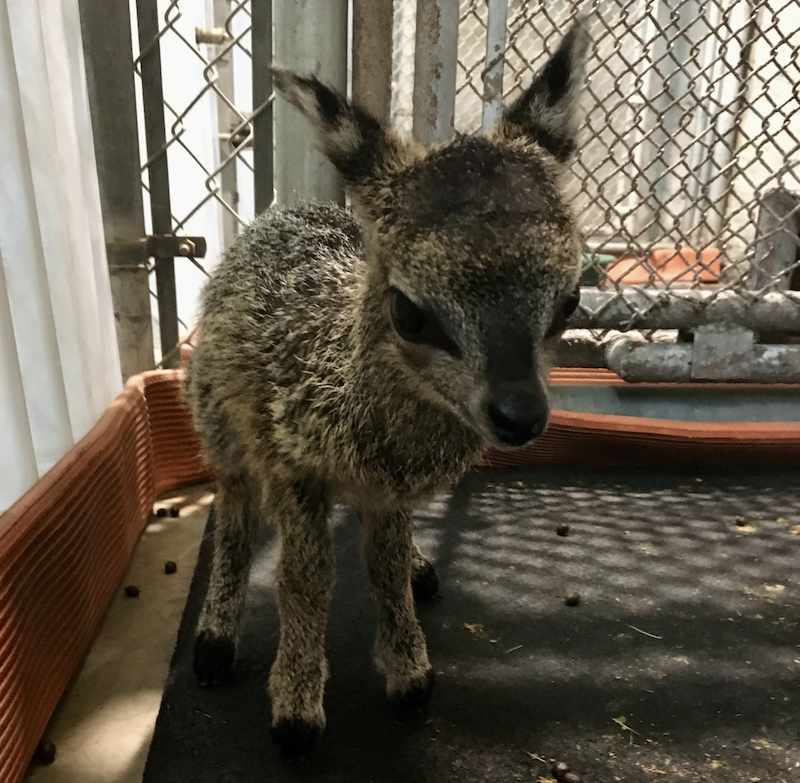
Baby Klipspringer Born at the ABQ BioPark Zoo
Zeelie is Raisin and Pogo's third calf, weighs in at just under two pounds.
Oct. 28, 2020 - The ABQ BioPark Zoo is excited to announce its newest face, a baby klipspringer.
The female calf, named Zeelie (pronounced Zee Lee), is mother Raisin's third calf. The father is Pogo.
The calf was born the night of Tuesday, October 20, and her caretakers say she was alert when they arrived Wednesday morning. Zeelie weighs in at just under two pounds and was standing, walking and nursing within a few hours of her birth.
"We're very excited to welcome another new member to our Zoo family," said Lynn Tupa, ABQ BioPark Zoo manager. "The baby was strong and healthy at her first baby exam, and mom and dad are doing a great job."
This birth is part of the klipspringer Species Survival Plan. This program, managed by the Association of Zoos and Aquariums (AZA), aims to cooperatively manage specific, and typically threatened or endangered, species at AZA-accredited facilities
Zeelie came as a bit of a surprise baby. Staff had seen breeding activities between Raisin and Pogo but they weren't sure if Raisin was pregnant. When staff started noticing that Raisin was getting a bit plumper and her nipples were developing, they decided it was time to find out for sure if she was expecting. To verify if Raisin was pregnant, staff trained her to take a voluntary x-ray in just one week. The Thursday before Raisin gave birth, staff were successful in getting the x-ray, which revealed baby Zeelie inside.
When temperatures reach 60 again, Zeelie will have access to her outdoor space though it may be awhile before guests can regularly see her - she can choose whether or not she wants to come out and she's also so small that she may be hard to spot until she gets a bit larger.
"Klipspringers are considered hiders," Tupa said. "Mom hides the baby and will come over and feed it a few times a day. Visitors probably won't see her jumping around for a couple of weeks."
Klipspringers are native to eastern and southern Africa. They exhibit long-term to lifelong pair bonding with their mates.
More photos of the baby can be downloaded here:
